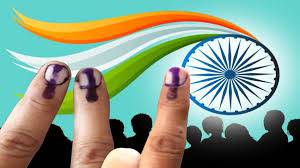On the 17th of February, Kurukshetra '17 organized a guest-lecture by Dr. M.S. Ananth, a prominent academic who served as the Director of the Indian Institute of Technology- Madras, from 2001 to 2011. The Guindy Times had an opportunity to interview Dr. Ananth, indulging in a very inspiring conversation. Here is an excerpt:
Q: What are the factors that drive your interests in research and innovation?
Let me tell you a story. In 1990, in Canada there was a carpenter who was educated only until the eighth grade, and yet became famous. I remember watching his interview on television, when I was in the United States. He was being asked many technical questions regarding his skills. Soon, he was visibly upset and said, "You can't expect me to understand everything I know."
Similarly, you can't expect me to know. I've had an interest in research and teaching from the very beginning. When I saw the rise of Intellectual Property rights around the world, I wished for it to be implemented here in India, as well.
Q: In your eleven years as Director of IIT Madras, can you tell us about the most memorable experience you have had?
IIT Madras is a very familiar ground for me as I've lived there for forty years! There were two big projects that I got through, one of them being NPTEL. The reason we started NPTEL (National Programme on Technology Enhanced Learning) arose out of a personal experience during an AICTE inspection in three colleges. There, I found three students who had been employed to sit in the classes when the inspection team arrived, due to an unrealistic rule imposed by AICTE: one teacher for fifteen students. We simply are not equipped with many Faculty members. Therefore, we wanted to expand education in a conventional way. We tried to use ICT - Information Communication Technology - to implement it, which is NPTEL. It took three years to get funding, but when it launched it was an immediate success. Over 200 million students use NPTEL today. We are now moving into the second phase.
Q: Can you tell us the importance of trusting our instincts while writing an examination?
Our examination system is such that we focus on marks. We have a large system, but it does not necessarily indicate that students understand the subject. Learning is a joy, and many students do not seem to understand that. A well-educated person can assimilate new concepts. Fundamentally, education gives you a shelving method and if you don't shelve your knowledge systematically, you cannot recall it when you need it. That is why you need to put things into perspective. Because of the large education system, you usually see more people vying for fewer seats in India, compared to the West where the number of seats available is equal to the number of students who need them.
Q: Do you think this could be the reason for a ‘brain- drain’ in India?
I would say that it is actually more a ‘brain- circulation’. The physical brain-drain is much less than what it seems to be. The people who go abroad for education are not always the best. They may just have good marks and very often, they do not have the right attitude.
I also went abroad to study and came back to India. There is no doubt that the Western education system is very good but you have to live life in your society. That is important. We must acknowledge our mistakes and make corrections. We should not blindly oppose the West or imitate them.
Q: What is your advice for students facing rejections to their research ideas, to prevent them from being de-motivated?
When I advise students, I hope they will listen, think and work for themselves. You cannot lose motivation when things do not go as planned. Life is about facing many uncertainties.
Q: Would you say that in India, the chances of failure are less?
I do not think that is true. Affluent societies like those in the U.S., appreciate the initiative even if you have failed. So, they will give you a second chance.
Here, when you miss a chance, someone else steps in. That need not frustrate you. You are ultimately the owner of your own happiness. I think giving up too easily is not a good thing. If people fail, it is either because they haven't thought things out, or because the circumstances weren't in favor, in which case they will usually know.
Nevertheless, kids these days don't give up as easily as they used to, as they are well-supported by their parents. Overall, things are improving.
Education is a pleasure, and it cannot be enjoyed once you have responsibilities. Being students, I urge you make the most of it when you can!





